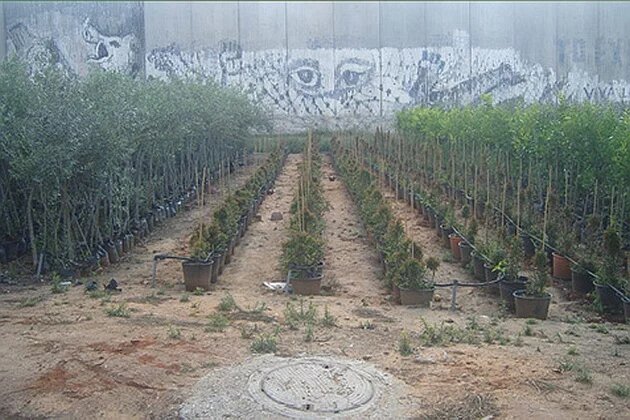
Al-Haq in cooperation with Heinrich Böll Foundation’s Palestine & Jordan Office published a study on “Environmental Injustice in Occupied Palestinian Territory: Problems and Prospects” in July 2015. The study was prepared by three researchers, Dr. Benjamin Pontin, Dr. Jesus Gamero Rus, and Vito de Lucia*. The researchers investigated environmental problems affecting Palestinians, which are attributed to Israel’s occupation of the territories of the West Bank (including East Jerusalem) and Gaza Strip. The investigation took place in relation to environmental justice.
The study includes documentation of a variety of demonstrable obstacles to environmental justice across the widest conceivable spectrum of circumstances. It examines relevant formal law and also, crucially, practical issues of law enforcement. The study pays particular attention to remedies for the vindication of rights available within transnational and international fora. The reason for this is the existence of insurmountable barriers to justice within the ‘domestic’ legal system, from which almost the entirety of the problem of environmental justice stems. The study also includes recommendations for solving the environmental injustice cases documented in the study.
The study is divided into seven chapters. Chapter One introduces the study, its context and components. Chapter Two elaborates on the domestic environmental justice ‘lacuna’, which defines the core problem according to the authors’ perspective. The authors consider the scope for treating the remedying of environmental injustices in Palestine as a shared concern among the judiciaries of the world, as well as international courts or quasi-judicial organizations. Chapter Three examines the law of universal jurisdiction in respect of crimes against humanity relevant to the Palestinian environment. Chapter Four examines the extra-territorial enforcement of relevant civil wrongs arising in connection with case studies of Chapter Three. Chapter Five concisely tackles the large and complex subject of the enforceability of Israel’s international environmental justice obligations, as well as the obligations arising from Israel’s status as occupying administration. Chapter Six examines environmental justice in the context of refugee camps, where displaced Palestinians live in large numbers. Chapter Seven draws conclusions and makes recommendations for possible solutions for obstacles facing environmental justice.
The authors as well as Dr. Leah Temper* presented the study to participants attended the International Conference on Critical Geography that was held in Ramallah/ Palestine between 26-30 July 2015. Dr. Temper also presented a paper on Globalizing Environmental Justice. In addition, the study was discussed with more than 30 experts from human rights and environmental organizations in a round table held by Al-Haq Organization and Heinrich Böll Foundation on 28 August 2015 in Ramallah. The discussion included suggestions for solutions for the environmental injustice cases and steps to further develop the study.
To download the study in English and Arabic, please CLICK HERE
* Dr. Benjamin Pontin, Director of the Environmental Law Unit, Bristol Law School, University of the West of England.
* Dr. Jesus Gamero Rus is the focal point for Climate Migration at the Center for the Cooperation in the Mediterranean of the Red Cross.
* Vito De Lucia is a research fellow, K.G. Jebsen Center for the Law of the Sea, UiT - Arctic University of Norway
* Dr. Leah Temper is a coordinator of EJOLT (Environmental Justice Organizations, Liabilities and Trade), and a researcher at the Autonomous University in Ecological Economics.